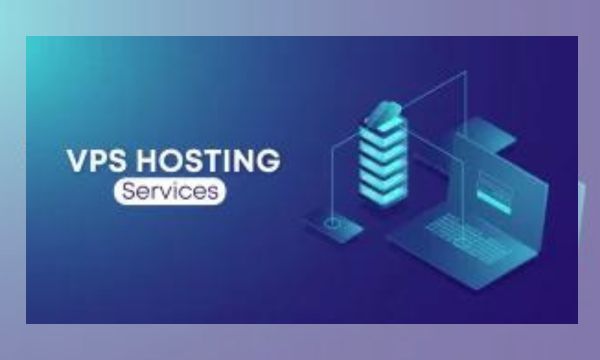Ensuring Website Security: VPS Server Measures
Ad
In today’s connected world, where the Internet is a way for businesses to connect with customers, website security is paramount.
With more and more transactions, communications and interactions taking place online, protecting private data and keeping digital assets safe is more important than ever.
Virtual Private Server (VPS) hosting is emerging as a powerful option that combines dedicated resources, increased control, and security measures that can be tailored to your needs. In this detailed article, we explore the multiple layers of website security in the context of VPS hosting.
Ad
We’ll also look at the various security measures you can use to protect your website and the valuable information it contains.
1. How to Find Solutions to Website Security Problems
Website security is difficult because there are many different risks and vulnerabilities associated with it. From advanced hacks to data breaches, the digital world is full of ever-changing risks. The most important part of website security is taking strategic steps to mitigate these risks and ensure that your website and its resources remain private, secure, and available.
Ad
2. VPS Hosting Security Armor
The way it’s built and how it works makes VPS hosting a formidable competitor when it comes to website security. VPS hosting gives your website its own share of server resources, unlike shared hosting where multiple websites share the same server. This separation improves speed and reduces the chance of security breaches from nearby websites. And because VPS hosting is so flexible, you can set security steps to suit the needs and nature of your website.
3. Important Steps for VPS Server Security
1.Keen Embrace of Regular Software Updates: Keeping the operating system, applications, and plugins on a server up to date is like building the walls of a castle. Regular updates often contain security patches that address known vulnerabilities. This makes it harder for bad guys to get in.
2.Sentinel: Implementing a firewall: A firewall acts as a digital sentinel, controlling access to your computer and blocking bad traffic and people who aren’t allowed in. Set up a strong firewall to filter incoming and outgoing data and only allow authorized connections to pass through.
3.Intrusion Detection and Prevention Systems (IDPS): IDPS is like a guard, always looking for suspicious activity on your computer. It not only detects potential threats, but also takes steps to prevent attacks.
4.Secure Sockets Layer (SSL) Helps Protect: An SSL certificate encrypts the connection between your server and the user’s browser. This prevents sensitive information from being seen by those who shouldn’t see it as it is being sent. SSL is very important, especially for websites that handle login and payment information.
5.Two-Factor Authentication (2FA)’s Guardian: 2FA adds an extra level of security by requiring users to go through two forms of authentication to access your server. Even if credentials are stolen, it reduces the chances of others entering without permission.
6.How Strong Regular Backups Are: Regularly back up your website data and settings in a place other than your website. In the event of a security breach or other disaster, backups are the only way to restore your website to a safe state.
7.Safe Passage with Secure File Transfer Protocol (SFTP): Use SFTP instead of standard FTP to move files to or from your computer. SFTP encrypts data as it is transferred, making it virtually impossible for bad guys to steal and modify files.
8.The Role of Access Control and Permissions: Set permissions to limit who can see important files and folders on your server. This reduces the chance of unauthorized changes being made or data being stolen.
9.Sentinel to Scan and Remove Malware: Regularly scan your site for malware and other unwanted code. If these risks are discovered, they must be immediately eliminated to prevent potential security breaches.
10.Careful Security Checks: Regularly perform thorough security checks to identify weak and strong parts of your server configuration. Solve problems as soon as they are discovered to maintain a solid defense.
See Too:
Conclusion:
In an era of data breaches and hacks, the importance of website security cannot be overemphasized. With its private resources, customization options, and built-in security features, VPS hosting is a powerful tool for protecting digital assets. By following best practices such as software updates, firewalls, SSL certificates, and access controls, you can provide your VPS server, as well as your website, with a strong foundation of security. As the digital world continues to change, website security will always be an ongoing task. It is your job to protect not only your own interests, but also the trust of users and buyers.
FAQs:
1. Is VPS hosting inherently more secure than shared hosting?
Yes, VPS hosting is generally considered more secure than shared hosting due to the dedicated resources and isolation it provides. VPS hosting reduces the risk of security breaches from neighboring websites.
2. How does an SSL certificate improve website security?
An SSL certificate encrypts the data sent between your server and users’ browsers, keeping sensitive information confidential. This is critical to protecting user data, payment information, and other sensitive data.
3. How often should I update my server’s software?
Regular software updates are essential to maintain security. Try to update your server’s operating system, applications, and plugins as soon as updates become available to avoid potential vulnerabilities.
4. What is the role of an Intrusion Detection and Prevention System (IDPS)?
An IDPS constantly monitors your server for signs of unauthorized access and suspicious activity. It not only detects potential threats but also takes preventive measures to mitigate them in real time.
5. Is two-factor authentication (2FA) necessary for server security?
Implementing 2FA adds an extra layer of security by requiring users to provide two forms of authentication before they can access your server. Although not mandatory, it greatly reduces the risk of unauthorized access and breaches.
 Supercharge Your Website: The Magic of VPS Servers
Supercharge Your Website: The Magic of VPS Servers
Ad In the magical world of the internet, where websites are digital stores and gateways to a […]
More Scaling Your Website with VPS Hosting
Scaling Your Website with VPS Hosting
Ad In today’s digital world, where websites are key to brand awareness and user engagement, the importance […]
More Maximizing VPS Resources: Tips for Efficiency
Maximizing VPS Resources: Tips for Efficiency
Ad Web hosting has become very important in the digital world, where websites and applications power business […]
More